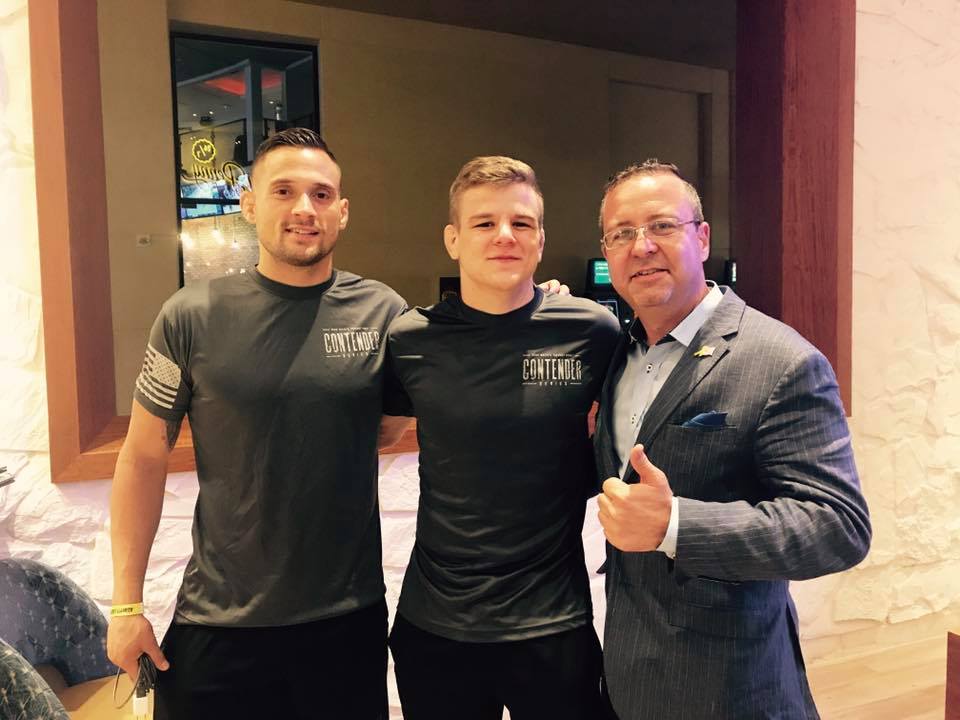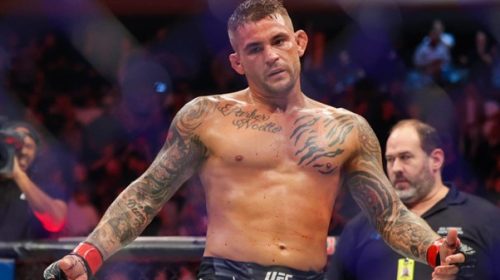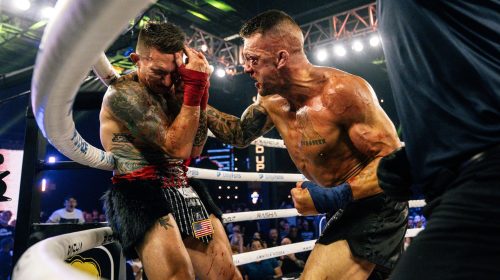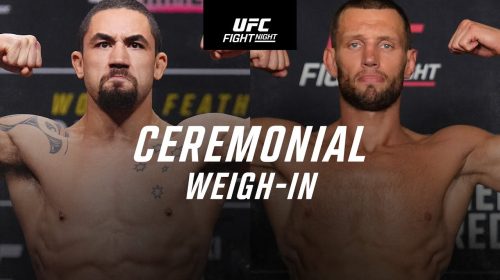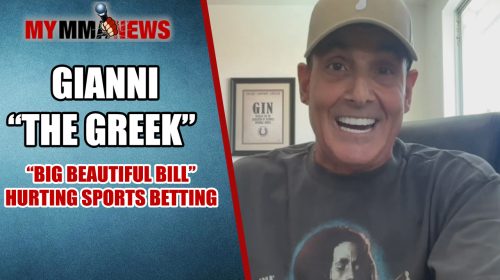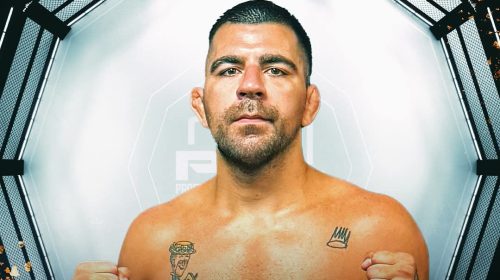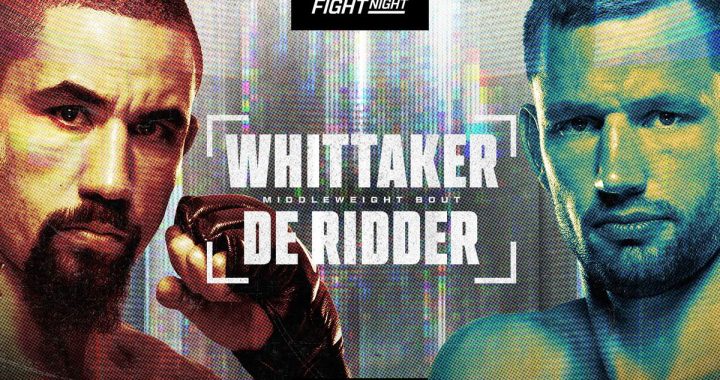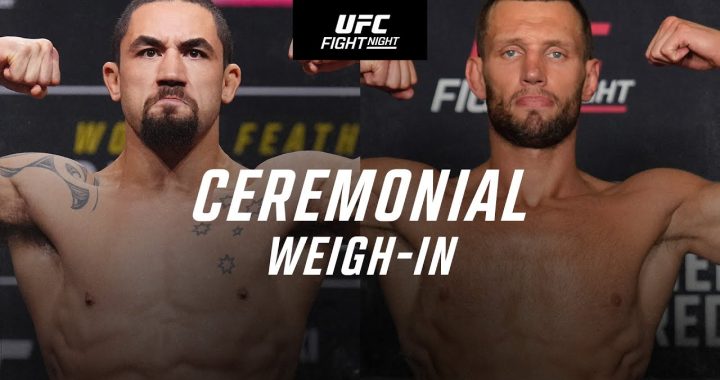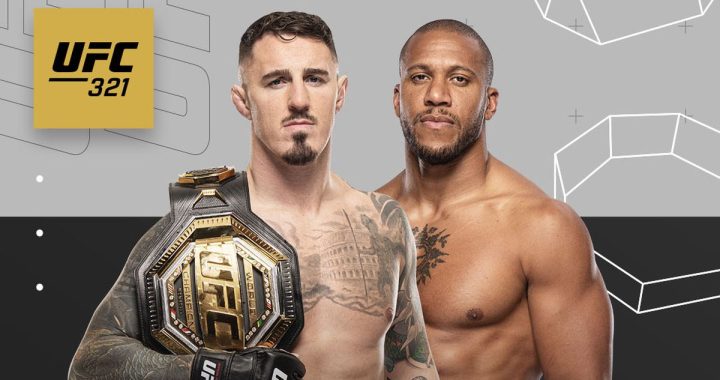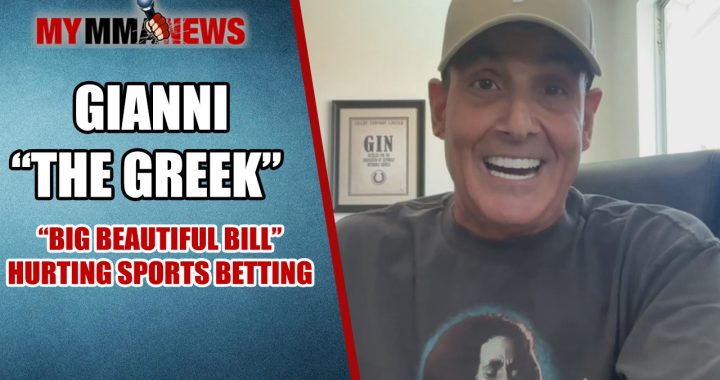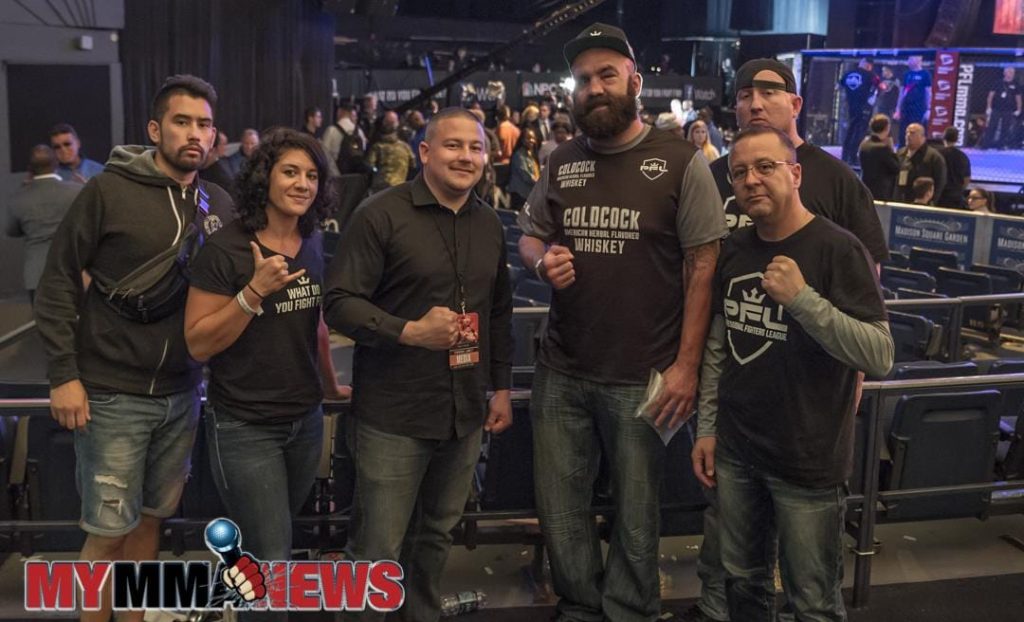
Robert Carver: “Give fans the path of least resistance to get exposed to the product”
Why Robert Carver is becoming one of the most sought after managers in the business
For every good fight manager out there, there are half a dozen who are not so good. Some will say they have their clients’ best interests at heart but when you talk to the fighter (client), he or she is not so certain.
By definition a manager is: a person who controls the activities, business dealings, and other aspects of the career of an entertainer, athlete, group of musicians, etc.
Meet Robert Carver. This consulting and resource manager, and director of a financial planning firm, also runs For the Fighters Management, and oversees that the above defined term is more than just a business transaction for those underneath his umbrella. Carver is actually one of the ‘good guys.’ While experience or longevity in the field may not be in his favor, it is undeniable that he truly knows how to get the job done.
“When I opened up my business consulting firm, I actually sponsored a Shamrock FC fight,” Carver said. “So that was my toe-dip into the water on the sponsorship side. I ended up getting to know some of the fighters and staff members that evening and made some connections. That’s how it all started.”
Carver’s passion for combat sports came at an early age and although it was never expected or planned, would eventually lead him the management role where he would soon open up his own firm.
“Both my dad and step-dad were boxers, so I had boxing gloves when I was a little tiny kid,” he said. “I loved wrestling, and wrestled. It is my favorite sport. So that is where all that comes from. When we grew up, we watched boxing constantly with my dad. We watched the old UFC stuff when it was first starting to come on. There was always an interest. I figured sponsoring an MMA event was kind of a unique way to get my name out there from the business consultancy standpoint, so I did that, and I just got to be friends with people. Through discussion, it was easy to identify where they needed help. I saw some glaring holes through things that they would tell me. That’s really how it started off and then it just happened. It just morphed. I would help a fighter here or there with some business type stuff, mostly as a favor because we were buddies. Then it grew to more and more on the fight side, like a manager. So I started as a business manager and then it morphed into the entire fight management side. For some that I still help with that were originally from the ‘beginning’ stage, the business side is still all I handle for them today as I work as a member of their team alongside their fight manager and will continue to do so. But with that said, I won’t be taking on any new clients solely in that capacity.”
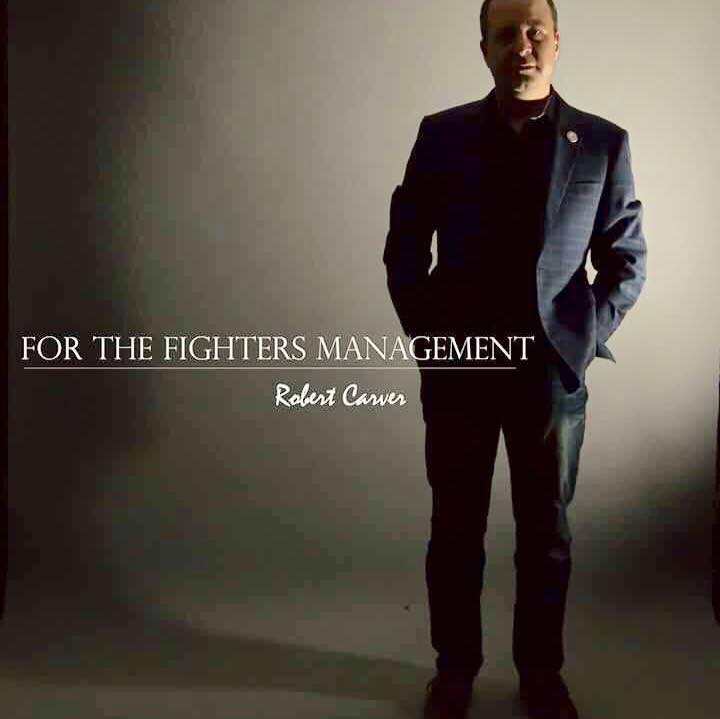
Carver cannot recall exactly who was his first “official” client but believes it would be either former Victory FC heavyweight champion Daniel Gallemore or Johnnie Roades.
“They were pretty much at the same time, but again it was more of just helping them out on the business side and then it morphed and just happened. Daniel would call me his business manager at first. There was never a day where we had a ‘Kum ba yah’ conversation and he said ‘you’re my manager.’ Word of mouth is typically where I get all my clients. Sometimes the promoters will be asked by the fighters ‘Who do you like to work with?’ or by word of mouth from my fighters.”
Since he committed to the management title three years ago, Carver has added a dozen fighters in his stable with a list of half a dozen more that he is looking to pull the trigger on in the coming months.
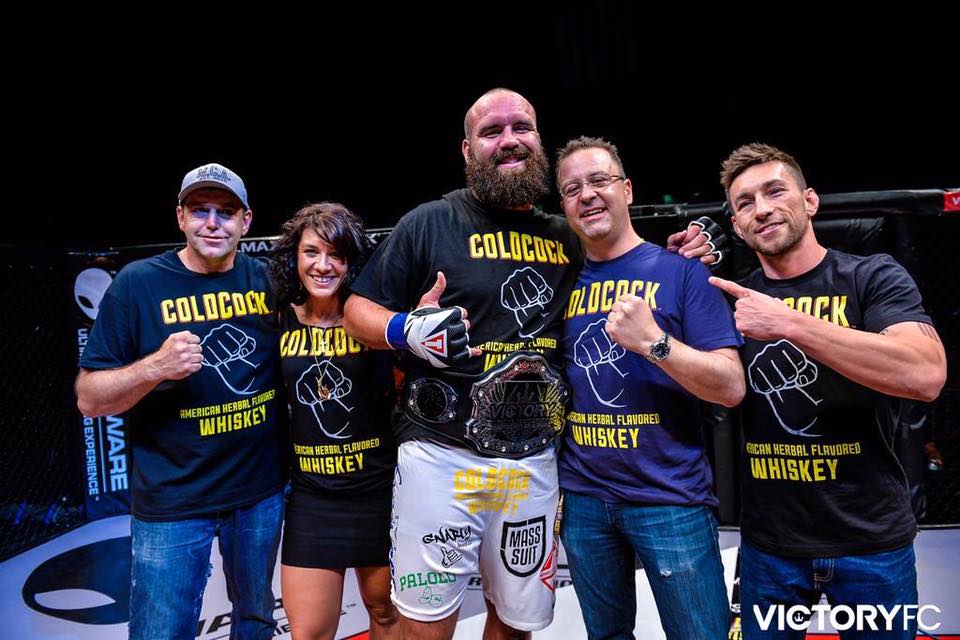
But what does being a manager entail aside from booking fights and finding sponsors? The job can require a lot of underappreciated, behind-the-scenes work, coordination, and communication between multiple parties.
“There’s some promoters that I almost protect the fighters from, and it is not that they are harmful people, I just have to be a significantly larger buffer with them,” Carver said. “I pretty much just require that they (the promoter) talk with me and leave the fighter alone. I always feel that one of my most important jobs is to ensure that we, myself and the fighters, have build great relationships. We have to partner with those promoters and sometimes they can come off as a little bit rough, and I want to be able to absorb that and not react emotionally as a fighter may in certain instances, and just let the fighter focus on the most important thing, training and winning.”
“Some of them (promoters) will just hammer on the fighter for things when really that is my job, to buffer between those,” he said. “There’s other promotions where there is such a ‘fighter first’ mentality that I don’t mind if they communicate with the fighter directly. That’s totally fine. And there’s some things that I don’t need to know or be involved in. If they need them to be there a half hour early for weigh-ins, I don’t need to manage that aspect necessarily. But there is such a fine line. Certain people come through me regardless, with others it is the complete opposite. There is no real middle ground as that is inefficient for everyone involved. We don’t want to appear standoffish or anything, that’s not it, we want to partner with the promoters- if they are successful, we are successful. It is all about building positive relationships where everyone involved benefits.”
“It’s that trust level you build with someone after you’ve worked with them for a while,” Carver said about his relationships with fighters, coaches, matchmakers, and promoters. “I’ve had people that weren’t uber-trusting right off the bat, and now it’s just carte blanche. Again, it is that relationship building and working together, through several fights that has created this trust level. Then they realize ‘ok, this is why I hired this person,’ and ‘this is why I pay this guy. I trust him.’”
Just as anyone would, Carver has industry favorites, or at least with ones that he has previously conducted business with.
“Great one to work for and with, are XFN out of Tulsa, Oklahoma. Dale Cook is the promoter and his matchmaker is Jameie Harris. They are always concerned that the fighters be well-taken care of. Definitely a ‘fighter first’ promotion. Another one that I just recently started working with that is super impressive and growing is Pyramid Fights. That’s run by Josh Hudson and Jim McDonough out of Arkansas. That’s a newer one. All my guys have to travel in a long way to fight for them, whether they are coming from St. Louis or Kansas City, or anywhere else. They’ve always got their best interests in mind. Josh communicates like crazy. I can send him a message and I immediately get a response. The few times that we’ve worked together he has absolutely proven to me that he cares about the fighters and wants to make sure their experience is outstanding with the promotion. And that’s why they are growing so quickly too, I can guarantee it.”
There are certain things that as a manager, Carver likes to look for when choosing which promotions he will allow his athletes to compete for.
“One thing that is really attractive to us is organization within the promotion,” he said. “I would absolutely go on record and say that Kansas City Fighting Alliance is the most organized promotion out there. It’s not bullshit. They are start on time, it’s a well-oiled machined.”
Aside from learning and understanding the different personalities or ways of doing business that each promoter has, the manager must also understand the ways that the various commissions interact differently as well, especially when it comes to the rulesets they put out there.
“It’s an art,” Carver described “You have to learn how the different athletic commissions and promotions work, and the organization and resources they put into the fights and events. It is very noticeable. I’ve built strong relationships with several commissions throughout the country. I think these relationships are super important to build as a manager and to make them real, yet professional at the same time. We have to make them understand that we are going to behave that way too, ‘real’ and professional. I’m going to behave that way towards them and my fighters are going to behave that way too, which they all do. They are all incredibly professional. But it takes the heat off the fighter if the commissioners and executive directors know me and have had positive interactions with me. I can do a lot of stuff behind the scenes for the fighters that they never even see happen and it takes the heat off of them so they can focus on getting ready for the most important thing, the fight.”
Man of many hats
“For most fighters I handle it all, negotiations, opponents, medicals, sponsorships, public relations, etc.,” Carver said. “Not for everyone, but for most. One important thing is to, ask about and work with, the promoter and the commission to handle the medicals. If I don’t know the requirements already when an offer comes in, it’s one of the first questions out of my mouth when we entertaining that offer- ‘what are the licensing costs and medical requirements?’ Then obviously I can handle and work that into the negotiation. Immediately I already know what we’ve got from a testing perspective, what we don’t have and what we’ll need to get done, and a rough idea of what it is going to cost us. Then I champion all of that and get some research done. I’ll go shop for a fighter, whether it be for a cheap MRI, or whatever. I’ll set it up, make the appointments, negotiate cash prices if the fighter doesn’t have insurance, etc. If there’s issues with the commission and the medicals, I’ll be the go-between. My fighters are never late with medicals. They (the fighters) are very responsible. They listen, plan, and ensure that we all do a great job and represent each other well.”
Not all sunshine and rainbows
“I’ve been there where one of my fighter’s opponent was arrested in the locker room before and the fight and obviously the fight was removed from the card,” he said. “The promoter made good on the show money and was very easy to work with. But if there ever was an issue like this to occur again, it all goes back to building the relationship so that the outcome is distinctly positive for my fighter and a positive relationship with the promoter remains intact. I would never want to have a fight fall off, or a bad relationship to results, because it is my fault. I’ve got to be involved in the bad news and outcome of any adversity, of course, but at the same time I can’t be cursing and swearing up a storm, and lose my cool over something. Things happen; we deal, we move on, but stay professional all the while.”
“Obviously certain peers have helped me out more than others with Joe Wooster being the main one by far that I owe a lot to. I’m always happy to see the good guys win. It seems we’re (management in general) getting better and moving in the right direction. I think we are always becoming more professional and trying to move the sport forward as a whole. People ask me a lot about if I get mad when a peer lands a top fighter, and I respond that I always applaud when another signs a big name or big prospect. I’m happy for both them and fighter- if they are successful and work well together, good for them and the positive impact their relationship brings to the sport. You hear the crazy stories about other managers with the behind the scenes shadiness; paying extra money directly to the manager behind the fighter’s back, getting paid to put amateurs on cards, and all that other bullshit I’ll never do. Then there’s that whole upper layer of managers, who operate with a significantly higher class of leadership and ethics. And when I say class, I mean the professionalism that they put into it. They are growing like crazy and there is a reason behind their success- good for them!”
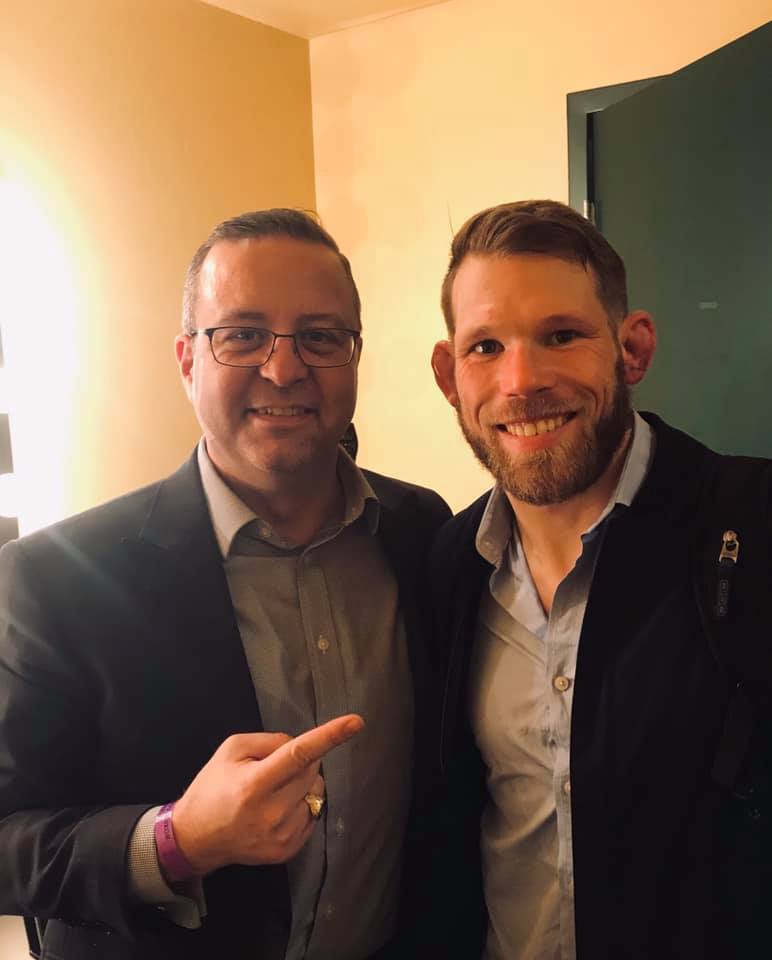
The Upside
“The coolest part is when you work with the fighters and you build the trust and interpersonal relationship. You can tell they are ‘in’ with the direction you are leading them and they like and respect you, or their management in general if it’s not me, as a human and as a person,” Carver said. “I think that is just awesome to experience myself and witness with peers and their respective team members. I never get upset and don’t take things personally if a fighter signs with someone else. If the other representative is reputable, so be it. Even in the conversation process I don’t downplay a peer if I’m talking with a fighter about managing them. If two of my peers are in the conversation as well and I respect them, I am honest with the potential fighter and tell them, ‘they are great managers. I can’t poke holes. Do I have certain qualities that give me an edge in my mind? Yes. But you are also not going to make a mistake if you choose either of the other two.’
“I don’t like any of that gossipy, unprofessional, backstabbing BS that you will see from certain managers, or promoters, or even fighters, but will not hesitate to give credit where credit is due. You see that whole crappy side, I hate that part, and I think that is something that drives me to do the right thing is that I never, ever want anyone to think of me in that fashion or as a member of that ‘group’. I want be known as transparent, enthusiastic and upfront. Even if it is bad news that I have to convey to a promoter, matchmaker or fighter- that’s the worst when a fighter has an opponent drop last minute, or they themselves have to drop a week or two before fight. I’m not going to sit there and hope for a miracle last minute to break the news to my fighter or a promotion if necessary. Delivering bad news is awful to do, but again, if I want a positive relationship to remain intact with a team member or promotion, I’ll always put my best foot forward, even if it is a hard conversation to have. I’ll always try to keep them in the know and not wait until the last minute.”
If there is any downside to managing a fighter, it is that once they become successful, others may want a piece of the pie. Luckily for Carver, he has not yet experienced a great deal of this aspect but is aware that the danger is always present.
“At this point I haven’t had anyone on my team tell me that anyone has been aggressively trying to ‘poach’ them,” Carver said. “I do know of maybe one instance where someone was trying to see how warm the water was with someone on my team, but that particular fighter came clean with me right away and informed me, but I don’t really see that as too big of an issue. And if it was the best decision for the fighter, I wouldn’t disagree with it, if it was the right move. With the fellow managers that I’m consistently around, there a couple that I notice that seem to be chasing guys. But for the most part it is very professional. Ultimately, all the behind the scenes shady scenes crap becomes pretty transparent.”
One of the risks a manager may face is losing their client to a larger or more established agency, but Carver believes there are ways to mitigate that early on.
“Here’s the thing, we (Carver and his clients) are in this for the long haul,” Carver said. “Nobody is getting paid if they are amateur, right? But if they have the potential upside in ability, drive, talent and listen well, I will gladly take them under my wing and teach them right… When this happens you obviously are not making money, you are losing money, but you are investing in that fighter. If the long term outcome is great, you are going to get paid tenfold back. If you do a kick ass job and have built a great relationship with that fighter, they shouldn’t leave. If you are following through with what you are promising, if you work hard, are transparent, hard on them when you need to be, easy on them when you need to be, and truly vest yourself managing their career, you’ll get paid in the end ultimately.”
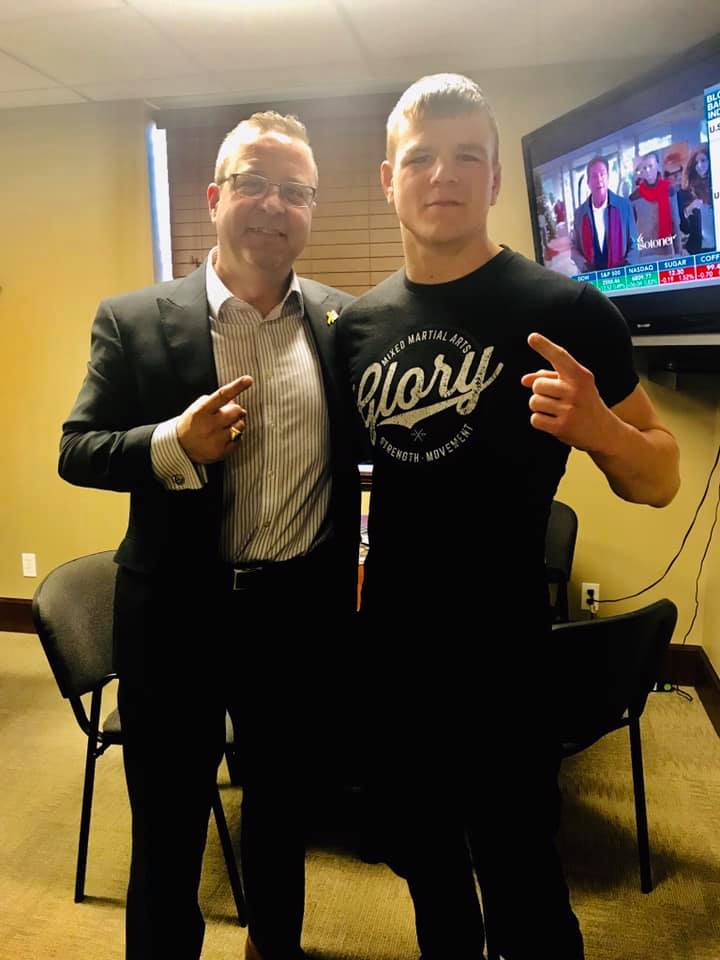
A question that often comes up is, “how much should a fight manager make? How much of the fighter’s purse should they be taking?” When you combine the question with the fact that not every contract is the same, not every fighter brings in the same pay, and not every promoter pays the same, the answer can be a challenge for anyone to figure out.
“That’s the super fine line. It really is. You’ve got to think that they incurred medical costs, training costs, gear costs, etc. I try to either negotiate all that stuff in for them or try to get them sponsors to mitigate some of those costs of doing business. If somebody needs to have an MRI, or something like that, I can occasionally negotiate that in, and get the promoter to pay for it. In that case, the fighter didn’t ‘make’ the $1000 it was going to cost them, but they also never spent it, so I believe in many of those situations you can leverage that in to negotiations. There are little oddities like that, that come into play.”
“Making this financially viable on it’s own definitely is a puzzle. Ultimately, you’ve got have a growth plan that includes a larger scale crew underneath you to make this financially viable. When you are starting out, expect to invest a significant amount of time, and sometimes even your own money, in to building your team and the relationships necessary within the industry to become successful. What’s nice is, now, a lot of times, my travel is included, the promoter will invite me down. Maybe they are not giving me money for gas or an outright plane ticket, but they are willing to help offset my costs by buying my food and paying for my hotel. It feels good that some of those things are starting to happen for me, but in the beginning, it was an absolute grind, losing money, no doubt. Thankfully, that part is behind me and we are trending away from that every day. Another way that I offset costs, is that I charge a higher percentage for sponsorships than I do for the typical fight purse agreement. That incentivizes me to try and hustle more, it helps the fighter, and I can mitigate my expenses through their sponsorships. Again, everybody wins, but I do charge more for those.”
Just as most anyone else does, Carver has goals in mind.
“I’m getting close to having to hire a sponsorship sales assistant. That’s probably going to be the person that from a structure perspective, would be working for a commission based on sponsorship dollars driven in. I would pay them to get me in front of the decision makers of the companies that would potentially sponsor so I can spend less time chasing and more time closing deals, which is my strength. They would get a cut of my cut, not charge the fighter anymore. I’d happily give them a split as I’ve got additional man or woman power that I never had before. If I double the amount of sponsors that a particular member of the team has, even though I’m going to be up part of my commission, it is still more than I am already making and half the time investment on my part. Even if I give up half, I’m working significantly less to get sponsors, the fighter is benefiting more, and I can handle a larger roster. Ultimately, it allows me the ability to become more successful from a financial perspective.”
Even though the sport has seen tremendous growth, as evident through the UFC’s $4.2 billion sale, there are also concerns with where the future is headed and how it will impact fighter pay and relations. One such scare is various promotions recently moving towards apps that require fans to pay an additional fee to watch the sport they once got for free.
“I do know that some of the larger organizations get beat up right now because they are on multiple stations or apps for one event and it is difficult for the fans to know where to catch the action, the event, or just a portion of an event,” Carver said. “I think that definitely has a negative on the overall exposure that the sport gets because they are making it really difficult to watch their product. Whether that is a poorly thought out process or what, I’m not sure. I can certainly see from a short-term business perspective exactly why they are doing that. But maybe they are cutting their nose off to spite their faces to be quite honest. You do notice and see it on fight nights. People are pissed on social media. ‘I need three different ways to watch this one card.’ And it’s multiple organizations, not just the UFC. Look at Bellator, some portions of the events are free on their website, sometimes not. Some are shown on cable and others on DAZN. And this again can change based on individual cards. I love both of these promotions, don’t get me wrong, but when it’s difficult for me to figure out, I can only imagine what it’s like for fans where this isn’t their job, and especially newly budded fans.”
“I’m guessing that they are going to fix as numbers will eventually go down as price point will start to scare viewers away- why would they pay for multiple apps, cable tv, and PPV’s when they are the casual fan? Gigantic corporations track their finances incredibly closely, and notice even small dents in the pocketbook pretty fast. They also tend to react even quicker to these ‘dents”. If they refuse to address the issue, yes, this could be a problem for the fighters as their pay and quality of accommodations could lessen. But, hopefully the people at the top of these organizations are smart enough to see that while short-term this strategy looked attractive financially, long-term may not be so. I really don’t know how you couldn’t see it coming though. If a casual or new fan has to have all these different paid apps and different cable packages to watch, how could it not hurt the sport? We should, as a collective industry, give fans and potential new fans the path of least resistance to get exposed to the product we provide. If we want the sport to continue to gain fans and remain near the top as the fastest growing sports in the United States, the path of least resistance will rule.”
